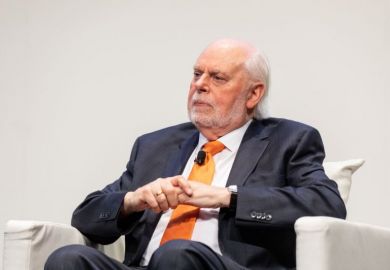Russia needs more “experimental” universities if it is to meet its ambitious targets for research development, according to a leading architect of the country’s excellence initiative.
Speaking at the Times Higher Education Research Excellence Summit in Moscow, Andrei Volkov, deputy chair of Project 5-100, said that the state’s higher education system must change in a way that was “complex, ambitious and challenging” if it was to get anywhere near its goal of creating five leading research universities by 2020.
“Not everyone agrees with me here, but we need more experimental universities,” he told an audience of policymakers and university leaders at the National University of Science and Technology (MISiS). By this, he later explained, he meant “institutional experiments in higher education, [universities] that do things differently”.
For example, Dr Volkov said, Togliatti Academy of Management in Samara Oblast, of which he was rector, structured undergraduate education around projects and ranked students to decide which experiences they could have.
Dr Volkov also cited Olin College of Engineering in the US – which has a strong reputation for hands-on teaching – and Germany’s Zeppelin University as examples of institutions that Russia could learn from.
“They may not be the most noticeable constituents of a system in higher education [in rankings],” he added, “but they are vital for keeping higher education agile, being essentially laboratories for new approaches”.
Russian universities, Dr Volkov explained, have until recently fitted into three traditional formats: centralised Soviet institutions, “flagship” universities set up to offer technical training and industry-specific institutions supervised by ministerial departments.
But such models were outdated and “ineffective” for the new targets set out under 5-100 – which aims to push five of the country’s universities into the top 100 of international rankings by 2020.
Asked where the responsibility lay for creating these new ventures, he said the onus should fall on both government – “which needs to send a signal to communities that new universities and new ideas are welcome” – and the private sector.
“The private sector should be the national actor in this field, because the government is busy supporting existing institutions,” Dr Volkov said. “This needs to be done with a business-like approach – not to create money but to create best practice.”
He continued: “Experimental universities should transform the way we look at higher education. Sometimes they will disappear: not everything should be very successful, but as with every aspect of life the best ones will survive and stimulate others.”
Register to continue
Why register?
- Registration is free and only takes a moment
- Once registered, you can read 3 articles a month
- Sign up for our newsletter
Subscribe
Or subscribe for unlimited access to:
- Unlimited access to news, views, insights & reviews
- Digital editions
- Digital access to THE’s university and college rankings analysis
Already registered or a current subscriber? Login








